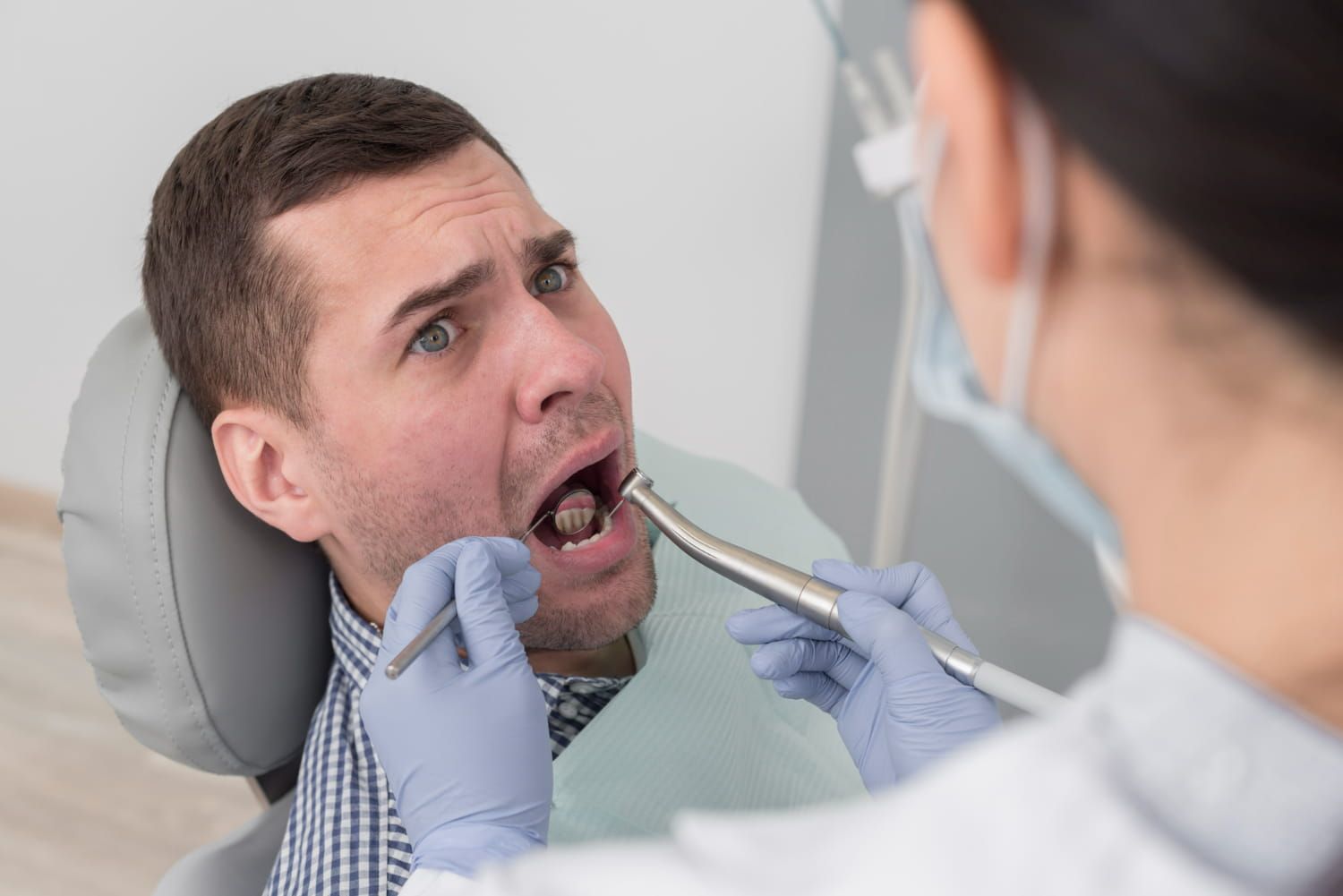
Common Causes of Fractured Teeth & How to Prevent Them
As dentists at Reflections Dental Care, we often see patients with tooth fractures who are unsure how it happened or how to prevent it in the future. A fractured tooth can be painful and lead to further complications if not treated properly. In this blog, we will explain what causes fractured teeth, the types of fractures, potential future complications, and the best ways to prevent them.
What Causes Fractured Teeth?
Tooth fractures occur for many reasons, and understanding them can help you protect your smile. Here are the most common causes:
1. Biting Hard Foods
Many people don’t realize how much pressure they put on their teeth when biting into hard foods. Ice, hard candies, nuts, and even unpopped popcorn kernels can cause tooth fractures. Over time, repeated pressure weakens the enamel, making teeth more prone to breaking.
2. Accidents and Trauma
Falls, car accidents, or sports injuries are significant causes of tooth fractures. A sudden impact on the face or jaw can crack or break teeth. This is why athletes should always wear mouthguards when playing contact sports.
3. Teeth Grinding (Bruxism)
Grinding or clenching your teeth at night (a condition called bruxism) can slowly wear down enamel and lead to tooth fractures. Many people don’t realize they grind their teeth until they experience pain, sensitivity, or a broken tooth.
4. Large Fillings or Dental Work
Teeth with large fillings or extensive dental work are weaker than natural teeth. If too much of the original tooth structure is removed, it may not have enough strength to withstand daily biting and chewing forces, leading to fractures over time.
5. Age-Related Wear and Tear
As we age, our teeth experience years of chewing, biting, and grinding. The natural aging process makes teeth more brittle, increasing the risk of fractures. Older adults are more likely to suffer from cracked teeth, especially if they have a history of grinding or biting hard foods.
6. Sudden Temperature Changes
Extreme temperature changes in the mouth can cause stress on the teeth. For example, eating very hot food and then drinking ice-cold water can cause tiny cracks in the enamel. Over time, these cracks can grow and lead to larger fractures.
7. Weakened Enamel from Decay
Tooth decay weakens the enamel and underlying tooth structure, making it easier for a tooth to crack or break. Cavities that go untreated increase the risk of a more severe fracture, sometimes leading to tooth loss.
Fractured Teeth Classification
Not all fractured teeth are the same. Dentists classify them into different types based on severity and location:
1. Craze Lines
These are tiny, shallow cracks that appear on the enamel. They are common and usually do not require treatment unless they cause sensitivity or discomfort.
2. Fractured Cusp
A cusp is the pointed part of a tooth. When a cusp breaks off, it usually does not affect the inner pulp of the tooth. These fractures are often repaired with dental fillings or crowns.
3. Cracked Tooth
A crack that runs from the surface down toward the root is more serious. If left untreated, the crack can spread and cause pain or infection. Treatment may involve bonding, a crown, or in severe cases, root canal therapy.
4. Split Tooth
A split tooth occurs when a crack completely divides the tooth into two parts. This type of fracture usually requires extraction, but in some cases, a dentist may be able to save part of the tooth.
5. Vertical Root Fracture
This is a crack that begins in the root and extends upward. It often goes unnoticed until it leads to infection or pain. Vertical root fractures typically require tooth extraction. If you're experiencing any type of tooth fracture, it's important to seek treatment promptly to prevent future complications. Our team of professionals in restorative dentistry in Oklahoma City is here to help you restore your smile and alleviate any pain. Call us today at (405) 751-4556 to schedule an appointment!

Future Complications from a Broken Tooth
Ignoring a fractured tooth can lead to serious dental issues. Here are some possible complications:
1. Increased Sensitivity and Pain
Even minor fractures can expose the inner layers of the tooth, leading to sensitivity to hot, cold, or sweet foods. More severe cracks can cause ongoing pain, especially when chewing.
2. Infection and Abscess
A cracked tooth can allow bacteria to enter the tooth’s pulp, leading to infection. If left untreated, the infection can spread to the gums and jawbone, creating an abscess that may require antibiotics, root canal therapy, or even tooth extraction.
3. Difficulty Chewing
A broken tooth can make it difficult to chew certain foods, leading to uneven pressure on your remaining teeth. This imbalance can cause jaw pain and further dental issues.
4. Tooth Loss
If a fracture extends deep into the root, saving the tooth may not be possible. In these cases, extraction is required, and the missing tooth may need to be replaced with a bridge, denture, or dental implant.
How to Prevent Tooth Fractures
While some fractures occur accidentally, many can be prevented with proper care and precautions. Here are some tips to protect your teeth:
1. Avoid Biting Hard Objects
Stay away from chewing on ice, hard candy, pens, or popcorn kernels. If you eat nuts, consider chopping them into smaller pieces.
2. Wear a Mouth Guard
If you play contact sports or grind your teeth at night, a custom mouth guard can protect your teeth from fractures and excessive wear.
3. Treat Teeth Grinding
If you suspect you grind your teeth, talk to your dentist. A night guard or relaxation techniques can help reduce the pressure on your teeth and prevent fractures.
4. Maintain Good Oral Hygiene
Brushing and flossing daily keep your enamel strong and prevent decay. Visiting your dentist regularly allows for early detection of weakened teeth that may be at risk for fractures.
5. Be Cautious with Temperature Changes
Avoid consuming very hot and cold foods at the same time. Sudden temperature shifts can stress and weaken your enamel.
6. Strengthen Weakened Teeth
If you have large fillings or a history of tooth fractures, your dentist may recommend a dental crown to provide extra protection.
7. Eat a Tooth-Friendly Diet
A diet rich in calcium and vitamin D helps keep your teeth strong. Drinking plenty of water and avoiding excessive sugary foods also reduces the risk of decay that weakens teeth.
Conclusion
Tooth fractures are common but preventable. By understanding what causes fractured teeth and taking steps to protect your enamel, you can maintain a healthy smile for years to come. If you suspect a tooth fracture or experience pain, call our Oklahoma City dentist at (405) 751-4556 for an evaluation. Early treatment can prevent future complications from a broken tooth and keep your oral health in top shape. If you have any concerns about a tooth fracture or need advice on protecting your teeth, schedule an appointment with us today!